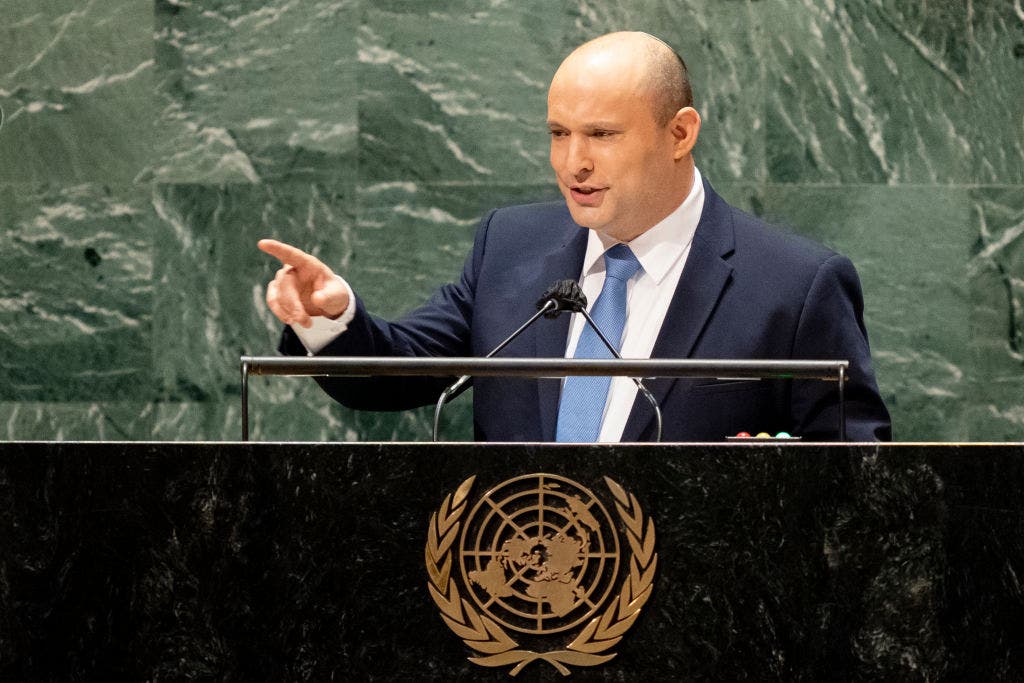Former Israeli Prime Minister Naftali Bennett strongly condemned the International Criminal Court (ICC) after a prosecutor announced he would request arrest warrants for Israeli and Hamas officials, calling it a “shameful moment” and a “total joke.” Bennett accused the ICC of being a “political tool” for Israel’s enemies and argued that Hamas leaders have committed war crimes and crimes against humanity. He called for the dismantling and defunding of the ICC and urged the use of all available tools to achieve this. Bennett criticized the effort to produce arrest warrants for Israeli officials as a “political play” and compared it to the abuse of the United Nations to condemn Israel while protecting Hamas.
A panel of three judges will review ICC Prosecutor Karim Khan’s request for warrants for Israeli officials and Hamas leaders involved in an attack, citing evidence of war crimes and crimes against humanity committed by both sides. Israeli Prime Minister Benjamin Netanyahu dismissed the warrants as fallacious and an example of the “new antisemitism.” Bennett agreed, calling it “anti-Zionism, anti-Israel, antisemitism.” He emphasized that Israel has been working to reduce civilian casualties while Hamas is actively trying to increase them, and rejected the accusations. Opposition leader Benny Gantz also criticized the ICC’s announcement, calling it a “crime of historic proportion” to be remembered for generations.
President Biden rejected the ICC’s effort to seek warrants for Netanyahu and other Israeli officials, stating that the U.S. does not believe Israel is committing genocide in Gaza. Despite Israel not being a member of the ICC, the threat of arrest warrants could create difficulties for Israeli officials while traveling abroad. The case of Russian President Vladimir Putin, who avoided traveling to ICC member countries after an arrest warrant was issued against him for the invasion of Ukraine, serves as an example. South Africa, which has been leading a campaign against Israel at the ICC, applauded the decision to seek arrest warrants for Netanyahu and Hamas leaders, maintaining its stance on seeking accountability for alleged crimes committed in Gaza.
Bennett highlighted Israel’s robust judicial system, stating that any crimes committed by the Israeli Defense Forces in Gaza are investigated and prosecuted when necessary. He rejected the allegations against Israel and emphasized the need to continue defeating Hamas. The Israeli government has allowed significant aid and resources into Gaza, working to reduce civilian casualties while fighting against Hamas violence. The ICC’s actions have been deemed as politically motivated by Bennett and others, reflecting a larger trend of utilizing international institutions to target Israel.
The debate over the ICC warrants has sparked intense criticism and condemnation from Israeli officials, with many accusing the court of being biased and serving as a tool for Israel’s enemies. The issue has also highlighted the complexities of international justice and the challenges faced by non-member states like Israel in navigating the legal landscape. The broader implications of the ICC’s actions, both in terms of legal precedent and international relations, are likely to continue to unfold in the coming months. Despite the strong opposition from Israel and its allies, the ICC’s decision to pursue arrest warrants for Israeli officials and Hamas leaders represents a significant development in the ongoing conflict in the region.













